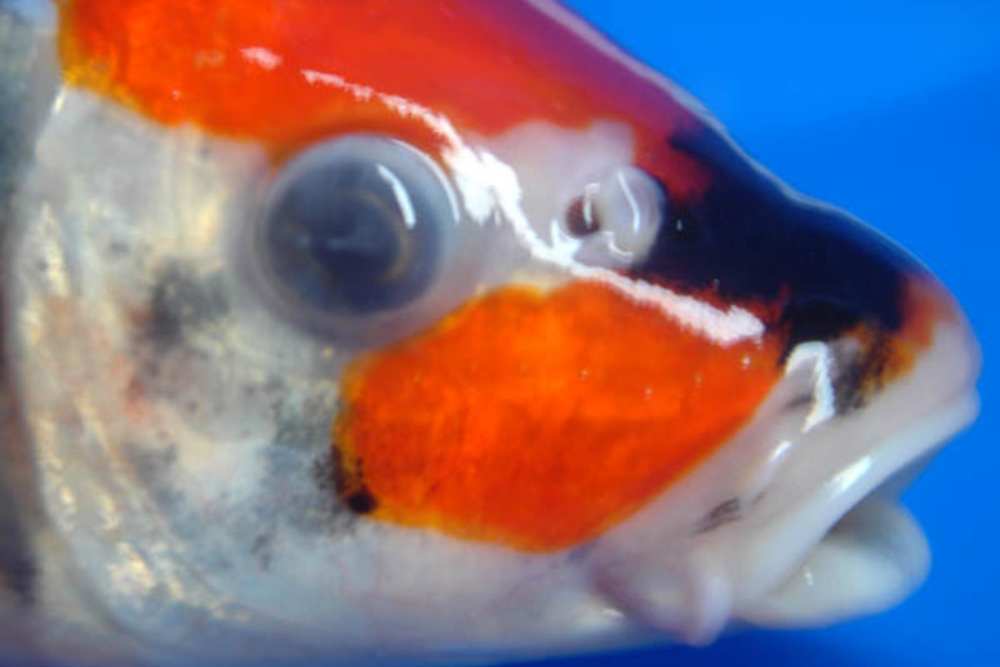Goldfish cloudy eye is a fairly common ailment and can be caused by a variety of factors. It is important to be able to identify the signs and symptoms of this condition so that you can provide the best possible treatment for your fish.
If your goldfish has a cloudy eye due to infection, you will likely notice other symptoms as well, such as lethargy, loss of appetite, or skin lesions. Treatment for an infected eye typically involves antibiotics or anti-parasitic medications.
In this article, we will discuss the causes, signs, and treatment of goldfish cloudy eye.

What is Goldfish Cloudy Eye
Cloudy eye (opacity) in aquarium fish refers to the cloudy appearance of the eyes caused by opacification of the lens, cornea, or conjunctiva.
When you see your goldfish swimming around with one cloudy eye, it can be concerning.
However, before you panic, it’s important to understand what might be causing the cloudy eye fish and whether or not it is a serious problem.
Causes Goldfish Cloudy Eye| Why Does My Goldfish Have a Cloudy Eye?
A number of factors can cause eye clouds in goldfish. These lesions may result from bacterial infections, poor water quality, including gas imbalances (causing exophthalmos), toxicants (cataract, hyperemia, keratitis, and retinitis), nutritional deficiencies (cataract), parasites which can cause injury to the eye.
Stress Condition
The more crowded and aggressive the culture, the worse your condition will be. The psychological and physical effects of culture can cause immunological deficiencies that may only be exacerbated by overcrowding, aggression in certain cultures.
Parasitic Infestation
The eyes of fish are very susceptible to disease and oftentimes display symptoms. Although eye diseases in aquaria may not be fatal, they can still affect a fish’s growth or make it unsightly for viewing pleasure if the infection is severe enough.
Eye infections like cataracts could also indicate other more serious problems with nutrition which lead to illnesses such as parasites that spread through poor sanitation systems resulting in sicknesses and even death.
Poor Diet
A bad diet will lower a fish’s immune system and make it more susceptible to bacteria or infection.
A cloudy eye can also mean your favorite pet is lacking vitamin A, which is crucial in maintaining its eyesight.
A poor diet that lowers their immunity means a riskier environment for the fish because of bacterial infections as well as an increased susceptibility towards parasites due to weakened defenses against them; this includes worms infestations on the skin, gills, intestinal tract, and fins.
If you notice any cloudiness forming over their pupils then they are most likely suffering from Vitamin D deficiency since all animals need some form of sunlight exposure through either artificial light sources like lamps or natural daylight coming in during windows near water tanks.
How To Treat Cloudy Eye in Goldfish | Goldfish Cloudy Eye Treatment
There are many ways to treat goldfish cloudy eye.
–If your Goldfish has cloudy eyes, the first thing you should do is take a look at the water quality in your tank. If the water is dirty or polluted, you will need to clean and filter your tank more often.
You may also need to add aquarium salt to your tank to help improve water quality and reduce inflammation.
-You may need to treat your Goldfish with antibiotics. There are many different types of antibiotics available for fish.
-Change the filter (or clean it) and get rid of any debris on top or near where they swim around most often.
In Conclusion,
Cloudy eye goldfish can be caused by a number of things, including infection, poor water quality, and food.
The signs of the cloudy eye are usually easy to spot and include discharge from the eye, changes in pupil size, and a decrease in vision.
Treatment for cloudy eye usually involves antibiotics if the cause is an infection, improved water quality, and in some cases surgery.

1 thought on “Goldfish Cloudy Eye: Causes, Signs & Treatment”
Comments are closed.